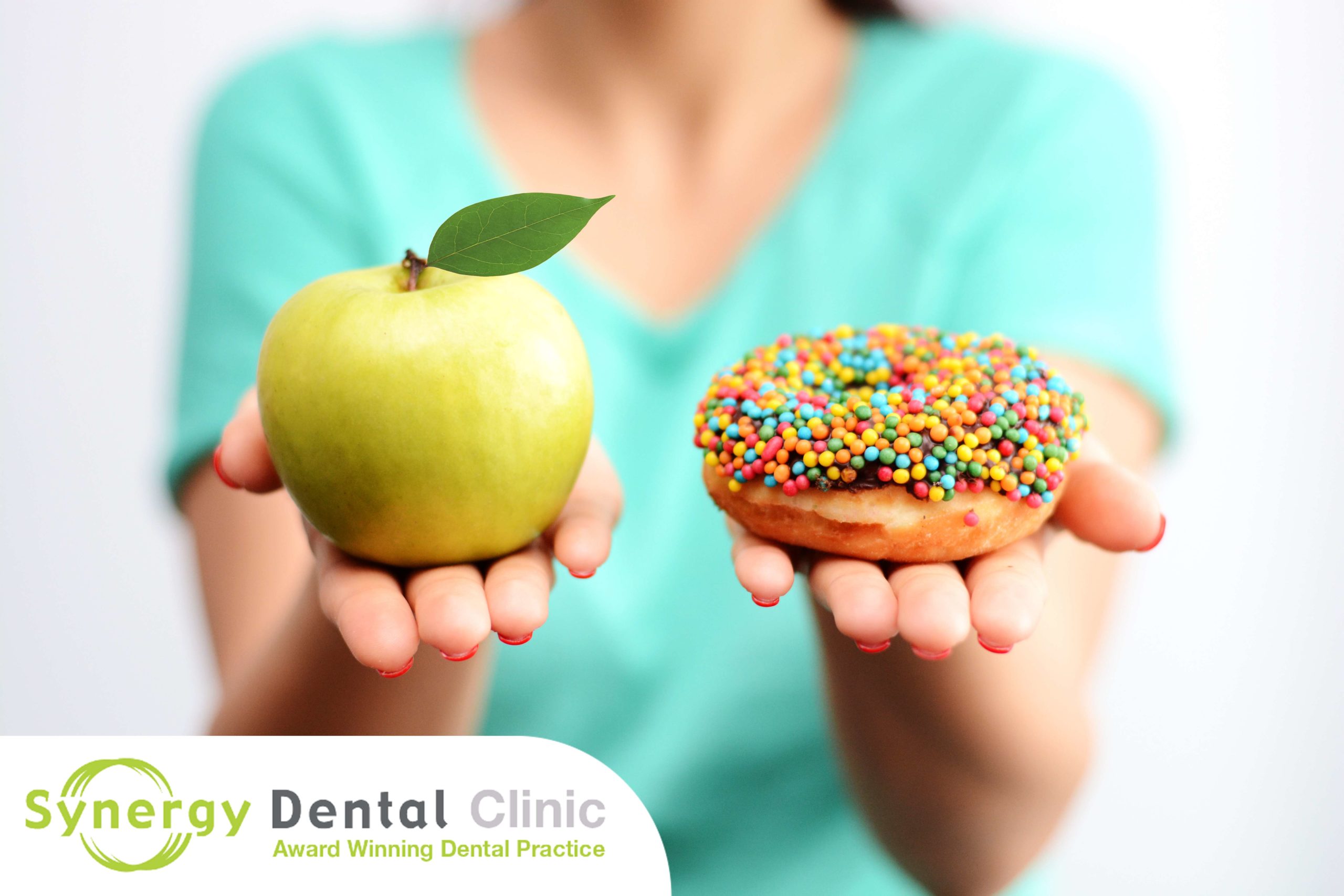Your diet can have a significant effect on your dental health, leading to decay and disease if you don’t balance your nutrition. A healthy diet contains food from a number of groups including fruit and vegetables, carbohydrates, protein and dairy. However, some of the foods in these groups should be consumed in moderation if you are to avoid oral health problems.
Carbohydrates and dental health
There are two main types of carbohydrate, both of which can affect dental health. The first, sugar, is a leading cause of dental decay, which can lead to cavities, fillings or dental extractions. The decay occurs when the sugar reacts with the bacteria in plaque, leading to a breakdown of the enamel. Although it’s not advised to cut sugar out of your diet completely, it is important to limit your intake in order to prevent cavities.
Large amount of acid are also present in many sugary foods including fruit, juice and fizzy drinks. Acid can also cause damage to teeth by eroding the surface, thinning the enamel. One way to prevent this is to reduce the amount of time you consume acidic foods to once or twice a day or balance your snacks with alkaline foods such as cheese and carrots.
Another method of preventing sugar-related tooth decay is to brush thoroughly twice a day with fluoride toothpaste, although the calcium and phosphate in your saliva will naturally repair your enamel if you leave enough time between sugar-based snacks.
The second type of carbohydrate, starches, can also cause tooth decay. Starchy foods, although less acidic that sugars, are more likely to cling to your teeth. This provides bacteria with a larger opportunity to react to the acids, causing damage to enamel.
Good foods
There are a number of foods that are particularly good for oral health such as orange vegetables, including pumpkins, carrots and sweet potatoes. These contain vitamin A, which aids the building of enamel during tooth development. Celery is also particularly effective at cleansing and stimulating the gums, while helping your mouth generate saliva.
Onions contain antibacterial sulphur compounds that kill bacteria in the mouth, preventing decay. Shiitake mushrooms have similar qualities; containing lentinan, the mushrooms prevent bacteria from forming plaque,
Although not strictly a food, the chewing of sugar-free gum has also been attributed with positive dental affects due to the fact that it encourages your mouth to produce saliva and break down bacteria.
Dental advice summary
• Don’t eat sugary or starchy foods more than twice a day
• Leave large breaks in between sugary meals to give your saliva the opportunity to break down the acids
• Use alkaline foods to counter acidic foods during meals
• Avoid sticky starch foods such as crisps
• Watch what you drink – fizzy drinks and fruit juices can cause as much damage as sugary foods
• Chew sugar-free gum to encourage the production of saliva after eating

